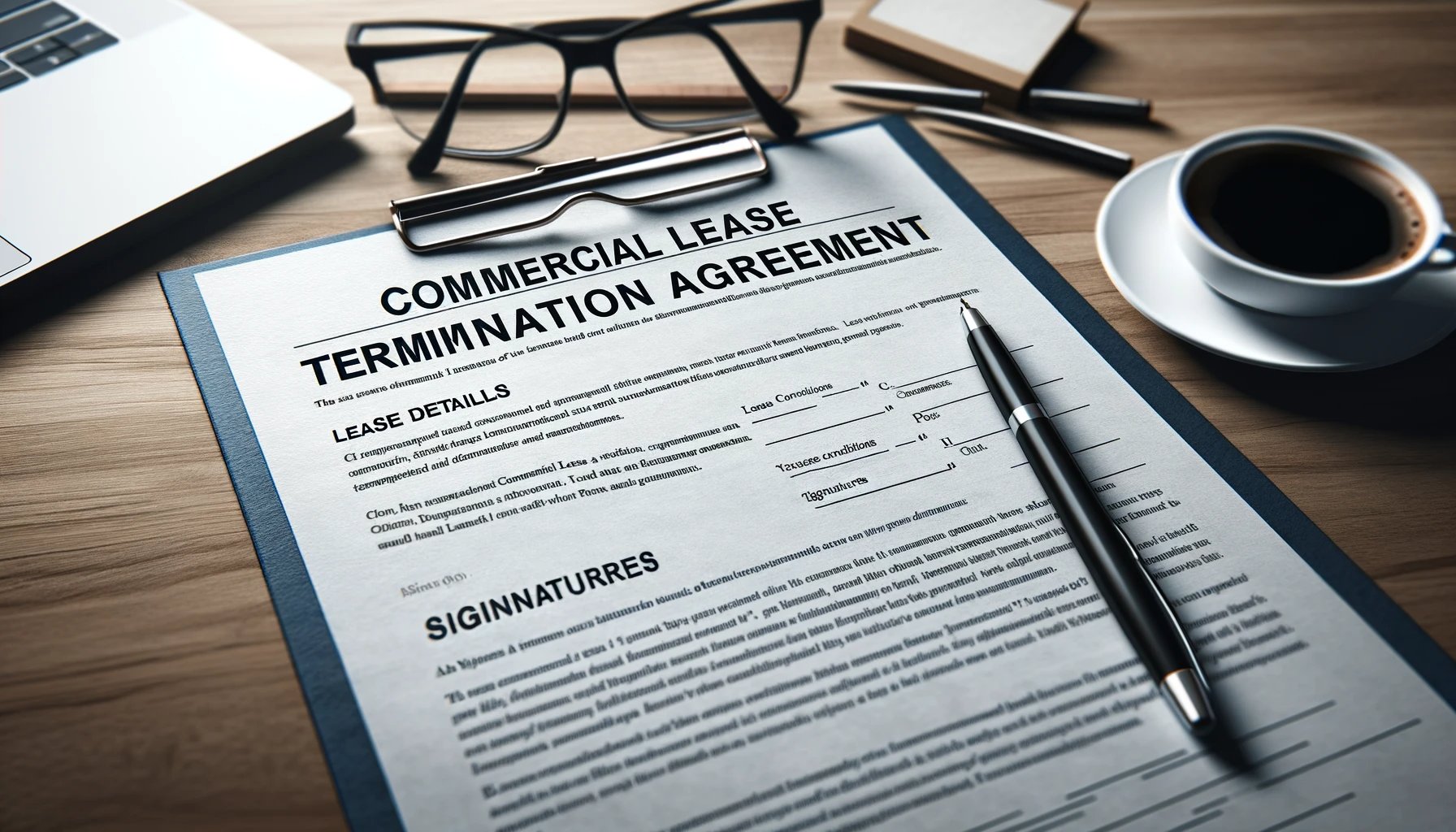Table of Contents:
- What is commercial real estate leasing?
- What is the difference between a commercial lease and a residential lease?
- How long should a commercial lease be?
- What is the difference between a gross lease and a net lease?
- Can I negotiate the terms of a commercial lease?
- What is a security deposit, and why is it required?
- Can I terminate a commercial lease early?
- What is a lease renewal?
What is commercial real estate leasing?
Commercial real estate leasing refers to the process of renting or leasing a property for commercial purposes. This type of leasing typically involves office spaces, retail spaces, industrial buildings, warehouses, and other commercial properties. The landlord (property owner) and the tenant (business or individual) enter into a legally binding agreement known as a lease, which outlines the terms and conditions of the lease, including the rental rate, lease duration, and other provisions.
The Importance of Commercial Real Estate Leasing
Commercial real estate leasing is crucial for businesses of all sizes. It allows businesses to secure a physical space to operate, expand their operations, and reach their target customers. Whether you are a startup or an established company, leasing a commercial property provides you with a cost-effective solution that can be tailored to your specific needs.
Benefits of Leasing Commercial Real Estate
There are several benefits associated with leasing commercial real estate:
- Flexibility: Leases typically offer a range of terms and options, allowing businesses to choose the lease duration and customize the space according to their requirements.
- Cost Savings: Leasing a commercial property eliminates the need for a large upfront investment, such as purchasing a property. Instead, businesses can allocate their capital to other areas of their operations.
- Access to Prime Locations: Commercial properties can located in prime areas with high foot traffic and visibility, providing businesses with a strategic advantage.
- Growth Opportunities: Leasing allows businesses to scale their operations as needed. If business needs change over time, tenants can often renegotiate lease terms or move to a larger or more suitable space.
Types of Commercial Real Estate Leases

When it comes to commercial real estate leasing, there are several types of leases that tenants and landlords can consider:
- Gross Lease: In a gross lease, the tenant pays a fixed monthly rental fee that includes rent and other expenses such as utilities, maintenance, and property taxes. This type of lease is common for office spaces and some retail properties.
- Net Lease: In a net lease, the tenant pays a fixed base rent along with additional expenses such as property taxes, insurance, and maintenance costs. Net leases are often utilized in retail & industrial properties.
- Triple Net Lease: In a triple net lease (NNN lease), the tenant is responsible for paying all operating expenses, including property taxes, insurance, and maintenance costs, in addition to the base rent. This type of lease is commonly used for freestanding buildings and long-term leases in multi-tenant properties.
- Percentage Lease: A percentage lease is commonly used in retail leasing, where the tenant pays a base rent along with a percentage of their sales. This type of lease allows the landlord to share in the tenant’s success.
- Sublease: In a sublease agreement, a tenant (sublessor) leases a portion or the entire rented space to another tenant (sublessee). The sublessor remains responsible for the rent and lease obligations under the primary lease.
- Build-to-Suit Lease: A build-to-suit lease involves the construction or customization of a property according to a tenant’s specific requirements. The landlord constructs or renovates the property to meet the tenant’s needs, and the tenant enters into a long-term lease agreement.
The Commercial Real Estate Leasing Process
The process of leasing a commercial property involves several key steps:
- Determine Your Needs: Assess your business requirements, including the desired location, space size, layout, amenities, and budget.
- Search for Available Properties: Utilize online platforms, commercial real estate agents, and property listings to identify properties that match your criteria.
- Property Tours: Schedule property tours to physically inspect the potential spaces and evaluate their suitability.
- Negotiate Lease Terms: Once you have identified a suitable property, negotiate the lease terms with the landlord or their representative. This includes rental rates, lease duration, lease options, and any additional provisions.
- Lease Agreement Review: Carefully review the lease agreement document, paying attention to all terms, obligations, and provisions. Seek legal advice, if necessary.
- Lease Signing: Sign the lease agreement and provide any required documentation or security deposits.
- Fit-Out and Move-In: Customize or prepare the space for your business operations. Coordinate with the landlord or contractors for any necessary fit-out work, and then commence your business operations.
- Ongoing Lease Management: Throughout the lease term, manage your obligations, such as rent payments, utilities, maintenance requests, and compliance with lease terms.
Frequently Asked Questions (FAQs)
Here are some commonly asked questions about commercial real estate leasing:
What is the difference between a commercial lease and a residential lease?
Commercial leases and residential leases differ significantly in their purpose, terms, and legal considerations. Here are the key differences between the two:
1. Purpose:
- Commercial Lease: A commercial lease is used for renting commercial properties, such as office spaces, retail stores, warehouses, and industrial facilities. These properties are typically used for business purposes.
- Residential Lease: A residential lease is used for renting residential properties, such as apartments, houses, condos, or townhouses, and is intended for individuals or families to live in.
2. Use:
- Commercial Lease: Commercial leases are intended for business operations. Tenants in commercial properties use the space for conducting business activities, such as offices, retail sales, manufacturing, or storage.
- Residential Lease: Residential leases are meant for individuals or families to use as their primary residence.
3. Lease Terms:
- Commercial Lease: Commercial leases tend to have longer lease terms compared to residential leases. Common lease terms for commercial properties are 3 to 10 years or more, with built-in options for renewal.
- Residential Lease: Residential leases are often shorter in duration, typically ranging from 6 months to 1 year. Month-to-month leases are also common in residential rentals.
4. Rent Amount and Structure:
- Commercial Lease: The rent structure in commercial leases is more complex and may include base rent, common area maintenance (CAM) charges, property taxes, insurance, and other expenses. Rent is often calculated per square foot.
- Residential Lease: Residential leases typically involve a straightforward monthly rent payment without additional charges, although some leases may include utilities or other fees.
5. Negotiation:
- Commercial Lease: Commercial leases are highly negotiable, and the terms are often tailored to the specific needs of the business tenant. Negotiations can cover rent increases, leasehold improvements, and more.
- Residential Lease: While residential leases can be negotiated to some extent, there is generally less room for negotiation, especially in highly competitive rental markets.
6. Regulations and Legal Protections:
- Commercial Lease: Commercial leases are subject to fewer regulations and legal protections compared to residential leases. Parties in commercial leases have more flexibility in drafting terms and conditions.
- Residential Lease: Residential leases are subject to a variety of local, state, and federal regulations that provide tenants with specific rights and protections, including eviction rules and habitability standards.
7. Termination and Eviction:
- Commercial Lease: Termination and eviction processes in commercial leases are typically more complex and may involve legal proceedings if disputes arise.
- Residential Lease: Residential leases often have well-defined eviction procedures, and landlords must follow strict guidelines to evict tenants.
8. Repairs and Maintenance:
- Commercial Lease: The responsibility for repairs and maintenance is often negotiated in commercial leases, and tenants may be responsible for a significant portion of property upkeep.
- Residential Lease: Landlords are typically responsible for maintaining and repairing residential properties, including major systems and appliances.
Both landlords and tenants must understand the differences between commercial and residential leases and seek legal advice when entering into lease agreements to ensure compliance with applicable laws and to protect their interests.
How long should a commercial lease be?
The appropriate length for a commercial lease can vary widely depending on several factors, including the type of business, location, and the specific needs of the landlord and tenant. Here are some considerations to help determine the appropriate length for a commercial lease:
- Type of Business: Different types of businesses may have different lease term requirements. For example, a retail store might prefer a longer lease to establish a stable presence, while a startup or a technology company might opt for a shorter lease to accommodate potential growth or changes in location.
- Market Conditions: Local real estate market conditions can influence lease lengths. In a competitive market with high demand for commercial space, landlords may offer shorter lease terms to keep flexibility for rent increases, while in a less competitive market, they may offer longer terms to attract tenants.
- Tenant’s Financial Stability: Landlords may consider the financial stability and track record of the tenant. A financially stable and established business may be offered longer lease terms, while newer or less financially secure businesses may be offered shorter terms.
- Business Plans: The tenant’s business plans can also play a role. If a business plans to expand, downsize, or relocate in the near future, a shorter lease with options for expansion or relocation may be more suitable.
- Landlord’s Investment Plans: Landlords may have their own investment plans for the property. If they intend to sell or redevelop the property in the near future, they may offer shorter leases.
- Legal and Regulatory Considerations: Local laws and regulations may impose limitations on lease terms for certain types of properties or businesses.
- Tenant Improvements: If the tenant plans to make substantial improvements or alterations to the property, a longer lease term may be necessary to justify the investment.
- Tenant’s Industry: Some industries have specific lease term preferences. For example, in the restaurant industry, it’s common to see leases with longer terms to amortize the cost of restaurant build-outs.
Common commercial lease terms include 3, 5, 7, or 10 years, but shorter or longer terms are also possible. Additionally, leases often include options for renewal or termination, allowing both parties some flexibility.
In practice, tenants and landlords need to negotiate lease terms that align with their respective goals and needs. Consulting with a commercial real estate attorney and an experienced commercial real estate agent with local market knowledge can help both parties make informed decisions about lease length and other lease terms.
What is the difference between a gross lease and a net lease?
A gross lease and a net lease are two common types of lease agreements in commercial real estate, each with different implications for the allocation of expenses between the landlord and tenant. Here are the key differences between a gross lease and a net lease:
Gross Lease:
- Expense Responsibility: In a gross lease, the landlord is responsible for most, if not all, of the operating expenses associated with the property. This typically includes property taxes, property insurance, utilities, maintenance, and common area expenses.
- Rent Structure: The rent in a gross lease is typically a fixed, all-inclusive amount. The tenant pays a single, predictable rent payment, and the landlord handles all operational costs.
- Predictability for Tenant: Gross leases provide tenants with predictable monthly expenses because they know exactly how much rent they need to pay each month. This can be advantageous for budgeting purposes.
- Common Usage: Gross leases are more common in residential leasing and some specific types of commercial properties, such as multifamily residential buildings or certain office spaces.
- Limited Tenant Control: Tenants in a gross lease have limited control over property management decisions since the landlord handles most operational matters.
Net Lease:
- Expense Responsibility: In a net lease, the tenant is responsible for paying a portion or all of the property’s operating expenses, in addition to the base rent. The specific expenses covered by the tenant depend on the type of net lease, which can include single, double, or triple net leases.
- Rent Structure: The rent in a net lease is typically lower than that in a gross lease because the tenant is taking on some or all of the property’s operating costs. The base rent is lower, but additional costs are incurred by the tenant.
- Expense Allocation: The allocation of expenses varies depending on the type of net lease:
- Single Net Lease: The tenant pays base rent plus property taxes.
- Double Net Lease: The tenant pays base rent plus property taxes and property insurance.
- Triple Net Lease (NNN): The tenant pays base rent plus property taxes, property insurance, and common area maintenance (CAM) expenses.
- Tenant Control: Tenants in net leases typically have more control over property management decisions and may have the ability to negotiate and manage some of the property’s expenses.
- Common Usage: Net leases are common in commercial real estate, particularly for properties like office buildings, retail centers, and industrial facilities.
In summary, the primary difference between a gross lease and a net lease is the allocation of operating expenses. In a gross lease, the landlord bears the majority of these expenses, while in a net lease, the tenant assumes some or all of them, leading to different rent structures and financial responsibilities for both parties. The choice between the two lease types depends on the specific property, market conditions, and negotiations between the landlord and tenant.
Can I negotiate the terms of a commercial lease?

Yes, you can typically negotiate the terms of a commercial lease. Commercial leases are generally more flexible and negotiable than residential leases, as they often involve larger sums of money and longer lease durations. Here are some common terms you can negotiate in a commercial lease:
- Rent: You can negotiate the rent amount, rent escalation clauses, and the frequency of rent increases.
- Lease duration: You can negotiate the length of the lease, which may include options for renewal or termination.
- Security deposit: You can discuss the amount of the security deposit required and the conditions for its return.
- Use of the space: Ensure that the lease allows for your intended business use and negotiate any restrictions or exclusivity clauses.
- Maintenance and repairs: Clarify responsibilities for maintenance and repairs, and negotiate who pays for them.
- Tenant improvements: If you need to make alterations to the space for your business, negotiate the terms and costs of tenant improvements.
- Operating expenses: Discuss the allocation of operating expenses such as property taxes, insurance, and common area maintenance (CAM) charges.
- Subleasing and assignment: Negotiate the ability to sublease the space or assign the lease to another party, if needed.
- Lease termination: Determine the conditions under which you can terminate the lease early and any associated penalties or notice requirements.
- Rent abatement or concessions: In some cases, landlords may offer rent abatement or other concessions as part of the lease negotiation.
It’s essential to conduct thorough research, understand your business’s needs, and carefully review the proposed lease terms before negotiating with the landlord. Consulting with a real estate attorney and an experienced commercial real estate broker can also be helpful to ensure you fully understand the legal implications of the lease and can negotiate effectively. Remember that successful negotiation often involves compromise, so be prepared to give and take to reach an agreement that works for both parties.
What is a security deposit, and why is it required?
A security deposit is a sum of money that a landlord or property owner collects from a tenant at the beginning of a rental agreement. Its primary purpose is to provide financial protection for the landlord against potential damages, unpaid rent, or other breaches of the rental agreement by the tenant. Here is a more detailed explanation of what a security deposit is and why it is required:
- Financial Protection: The security deposit serves as a form of insurance for the landlord. If the tenant causes damage to the rental property beyond normal wear and tear or fails to pay rent, the landlord can use the security deposit to cover those costs. It acts as a financial cushion to cover any potential losses.
- Incentive for Responsible Tenant Behavior: Knowing that their security deposit is at stake, tenants are incentivized to take good care of the property and abide by the terms of the lease agreement. This helps promote responsible tenant behavior and reduces the likelihood of damage or unpaid rent.
- Legal Requirement: In some jurisdictions, requiring a security deposit is a legal requirement for landlords. Local and state laws often dictate the maximum amount that can be charged as a security deposit and outline specific procedures for handling and returning the deposit at the end of the tenancy.
- Covering Unpaid Rent: If a tenant fails to pay rent or leaves the property with unpaid rent, the security deposit can be used to cover those outstanding rent payments, helping to mitigate financial losses for the landlord.
- Repairing Damage: The security deposit can be used to repair any damage caused by the tenant that goes beyond normal wear and tear. This can include fixing broken appliances, repairing holes in walls, or replacing damaged flooring.
- Cleaning Costs: Landlords can use the security deposit to cover cleaning expenses if the tenant leaves the property excessively dirty or cluttered, making it necessary to hire professional cleaning services.
It’s important to note that security deposit regulations vary by location, and landlords must comply with local laws and regulations regarding the collection, handling, and return of security deposits. Generally, landlords are required to provide an itemized list of deductions from the security deposit and return any remaining funds to the tenant within a specified period after the lease ends. Failure to follow these regulations can result in legal consequences for the landlord.
Can I terminate a commercial lease early?

Terminating a commercial lease early is typically more complicated than ending a residential lease, as commercial leases often involve larger financial commitments and longer terms. Whether you can terminate a commercial lease early depends on several factors, including the terms of the lease agreement, your specific circumstances, and the applicable laws in your jurisdiction. Here are some common ways to terminate a commercial lease early:
- Review the Lease Agreement: The first step is to carefully review your commercial lease agreement. It should outline the terms and conditions related to early termination. Look for any provisions that discuss termination clauses, penalties, notice requirements, or any specific circumstances under which you can terminate the lease early. Some commercial leases may have options for early termination, but they often come with associated costs or penalties.
- Negotiation with the Landlord: You can try negotiating with your landlord to reach an agreement for early termination. Landlords may be willing to work with you, especially if you have valid reasons for wanting to end the lease early. Negotiations could involve paying a penalty, finding a suitable replacement tenant, or other mutually acceptable terms.
- Sublet or Assign the Lease: Some commercial leases allow tenants to sublet or assign their lease to another business. If this is permitted under your lease agreement, you may be able to find a new tenant to take over the remaining lease term, effectively ending your obligations. However, you may still be responsible for ensuring the new tenant meets the landlord’s approval criteria and adheres to the terms of the lease.
- Early Termination Clause: Some commercial leases include specific early termination clauses that outline the conditions under which either party can terminate the lease early. These clauses may require a certain notice period, payment of a penalty, or compliance with other conditions.
- Force Majeure or Legal Provisions: In exceptional circumstances, such as natural disasters, government actions, or other unforeseen events, certain lease agreements or local laws may provide for early termination or suspension of lease obligations. These provisions are typically referred to as force majeure clauses and can vary widely in their scope and applicability.
- Seek Legal Advice: If you are unable to find a suitable solution within the lease terms or through negotiations with your landlord, it may be advisable to consult with an attorney who specializes in commercial real estate law. They can provide guidance on your specific situation and help you explore legal options.
It’s essential to approach the situation carefully and follow the procedures outlined in your lease agreement and local laws. Terminating a commercial lease early can have financial and legal implications, so it’s critical to understand your rights and obligations before taking any action.
What is a lease renewal?
A lease renewal is a process in which the landlord and tenant agree to extend the existing lease agreement for a specified period beyond its original term. It is a common practice in both residential and commercial real estate when the initial lease term is about to expire, and both parties wish to continue the rental arrangement. Here’s how a lease renewal typically works:
- Notification: Typically, the lease agreement will specify when and how either party should notify the other about their intention to renew the lease. This notification is usually given well in advance of the lease’s expiration date, often 30 to 90 days before it ends.
- Agreement Terms: During the lease renewal process, the landlord and tenant can negotiate any changes to the lease terms. This may include adjustments to the rent amount, changes to lease duration, updates to maintenance responsibilities, or any other terms relevant to the lease. Both parties must agree on these changes and document them in writing.
- Renewal Documentation: Once both parties have reached an agreement on the lease renewal terms, a new lease document or lease renewal addendum is typically prepared. This document outlines the updated terms and conditions and specifies the new lease duration. Both the landlord and tenant sign this document to formalize the renewal.
- Rent Adjustments: In a lease renewal, the landlord may choose to increase or decrease the rent. The new rental rate should be clearly stated in the renewal document, along with any details about when and how the rent should be paid.
- Lease Duration: The lease renewal can extend the rental arrangement for a fixed period, such as another year, two years, or any agreed-upon duration. The specific duration should be specified in the renewal document.
- Legal Compliance: Both parties should ensure that the lease renewal complies with local and state laws and regulations governing residential or commercial leases. This may include adhering to rent control laws, providing required notice periods, and following other legal requirements.
- Execution: Once the renewal document is signed by both the landlord and tenant, it becomes a legally binding agreement, and the lease continues according to the updated terms and duration.
Lease renewals are advantageous for both landlords and tenants. Landlords can maintain a stable rental income and avoid the costs and time associated with finding new tenants, while tenants can continue to occupy a familiar space without the disruption of moving. It’s essential for both parties to communicate effectively, negotiate terms, and formalize the renewal in writing to protect their interests and ensure a smooth transition into the renewed lease period.
Get Expert Guidance on Your Commercial Lease Today
Navigating a commercial real estate lease can be complex, but you don’t have to do it alone. Whether you need help finding the right space, negotiating lease terms, or understanding your options, we’re here to assist you every step of the way.
📞 Call us today at 502-536-7315 to discuss your leasing needs.
📩 Email us at raphael@sumcg.com for personalized assistance.
Let’s find the perfect space for your business to thrive!
